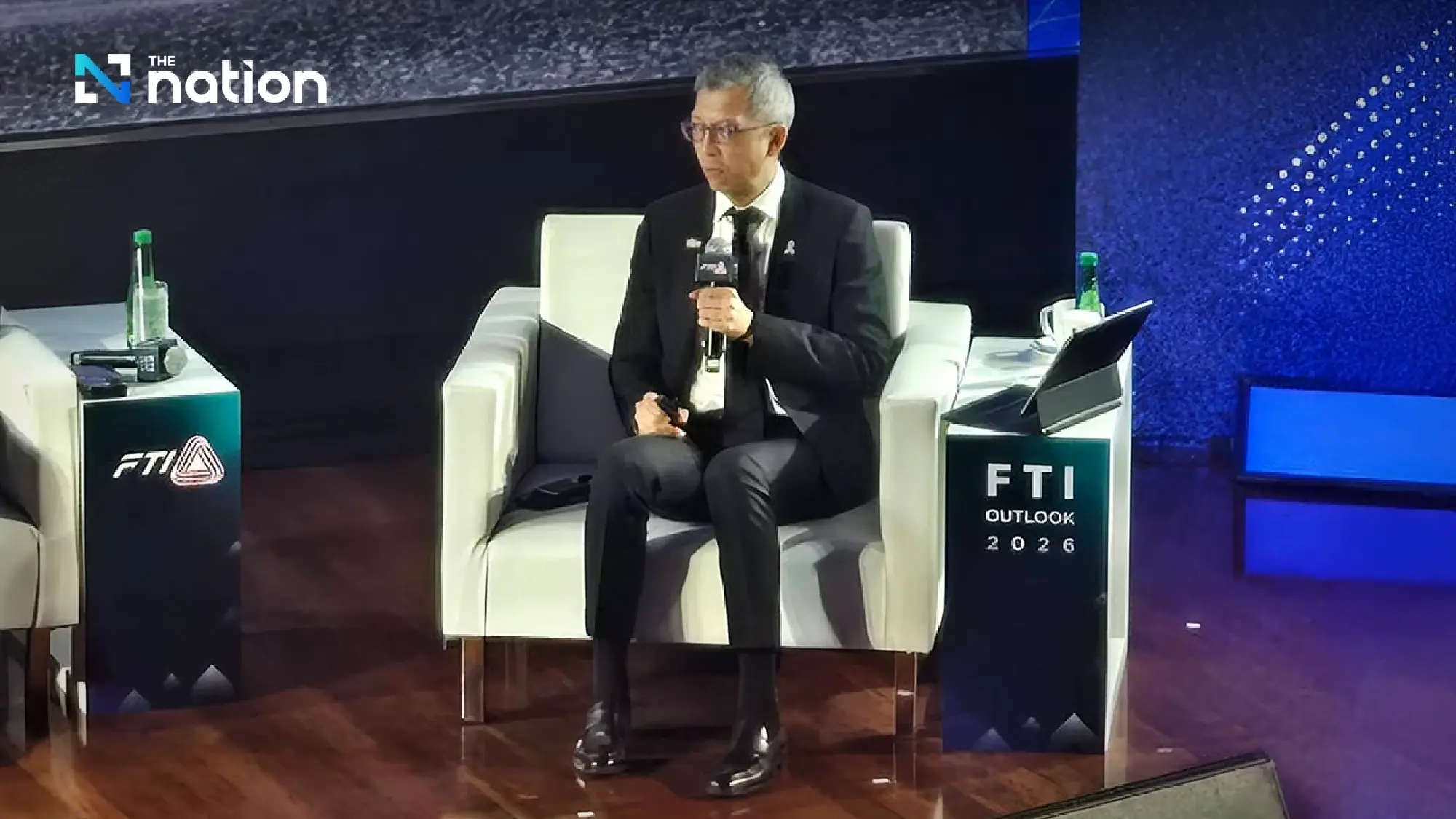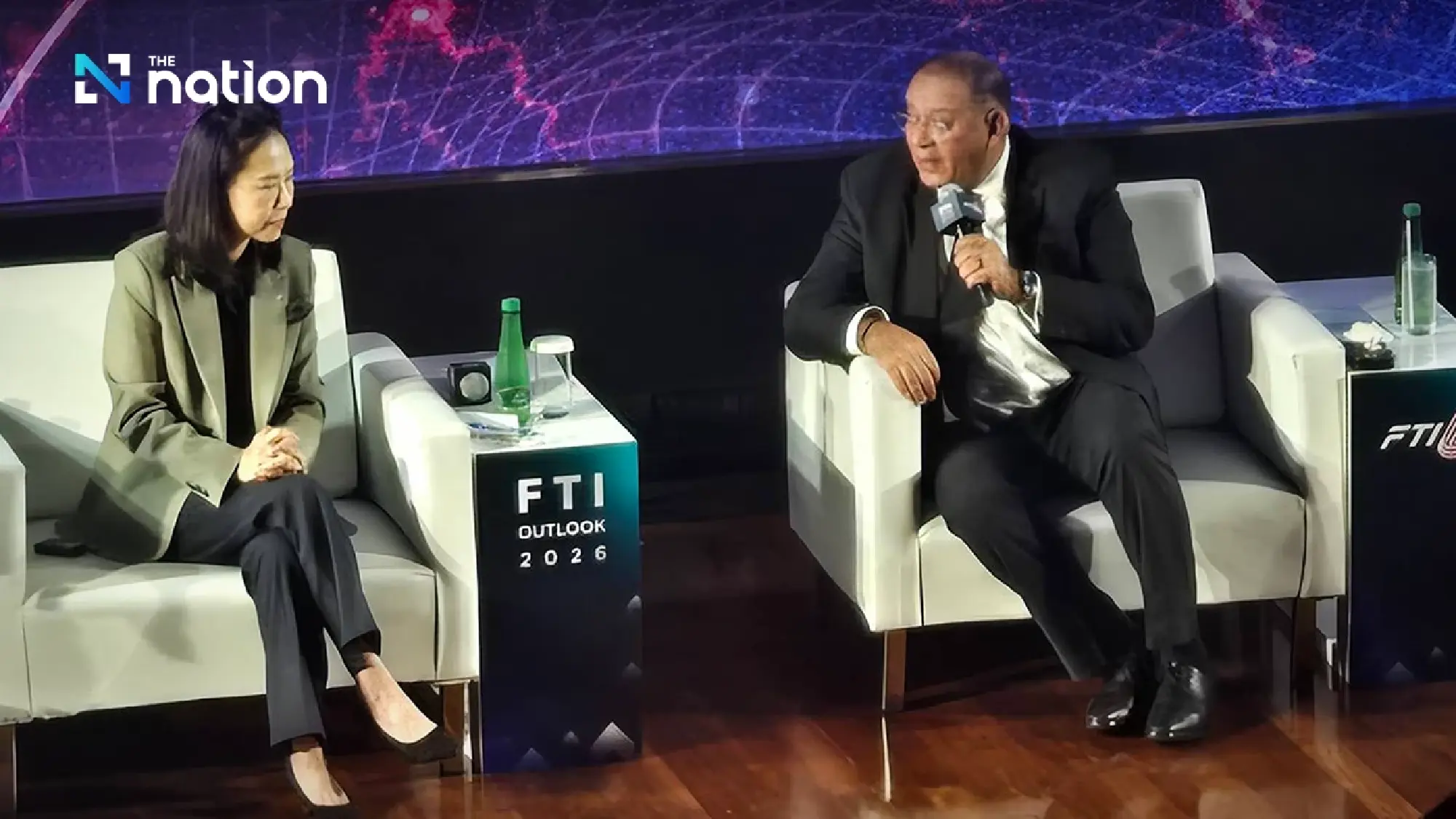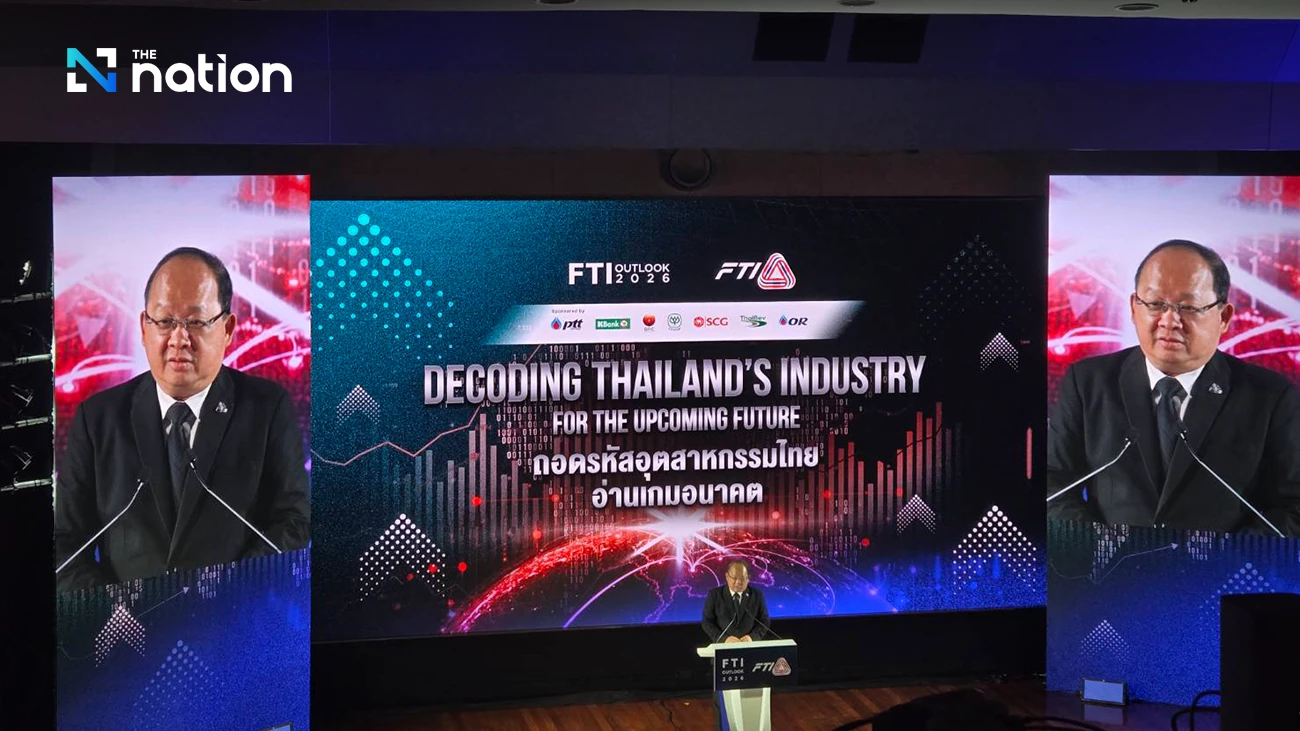
He emphasised that whilst large corporations generate 70 per cent of GDP, the SME sector—which employs 70 to 80 per cent of the workforce—is lagging significantly, suppressing overall household income growth.
Piti warned that Thailand is increasingly becoming a “transshipment country”, primarily importing finished goods from China rather than manufacturing domestically.
He called for a fundamental policy shift from a large corporate-centric focus to an SME-centric and “real people-centric” approach, advocating for policies based on Regional Value Content and local content to ensure Thai products—particularly those that are “greenly made by Thai companies”—receive competitive advantages.
To ensure long-term financial stability, he stressed that National Credit Bureau data must be mandatory to enable risk-based pricing and encourage responsible credit behaviour.
Automotive Sector at Crossroads
Chanapun, senior vice president of Thai Summit Group, warned that the automotive component manufacturing sector faces existential challenges as the market for hybrid electric vehicles currently grows faster than pure battery electric vehicles.
She highlighted critical risks including domestic suppliers lacking technology to compete with Chinese entrants, volume reduction per model due to market fragmentation across 20 original equipment manufacturers instead of 10, and the need to adapt to process disruption such as switching materials from steel to aluminium or magnesium.
“If Thai suppliers fail to adapt, they risk becoming the ‘farmers in the industry’—doing the hard work but capturing minimal value, which accrues instead to OEMs and consumers,” Chanapun warned.
She urged manufacturers to choose between becoming cost companies focused on production excellence or technology companies focused on research and development, whilst advocating for government policies that incentivise existing Thai manufacturers to upgrade facilities rather than focusing solely on attracting new foreign investment.

Energy Security Concerns
Montri, chief executive of PTTEP, emphasised that energy security remains fundamental to economic stability, noting that 60 per cent of Thailand’s electricity is generated from natural gas, with 40 per cent of supply imported.
This reliance exposes the nation to extreme price volatility, as demonstrated during the 2022 global crisis when Thailand struggled to purchase high-priced liquefied natural gas.
Whilst confirming Thailand has robust infrastructure to prevent blackouts, Montri warned that long-term prices will remain high due to import dependence.
To support the “Go Green” objective, PTTEP is committed to carbon capture and storage, including the Arthit project, which aims to store one million tonnes of CO2 annually, despite the current lack of clear government regulation and incentives.

